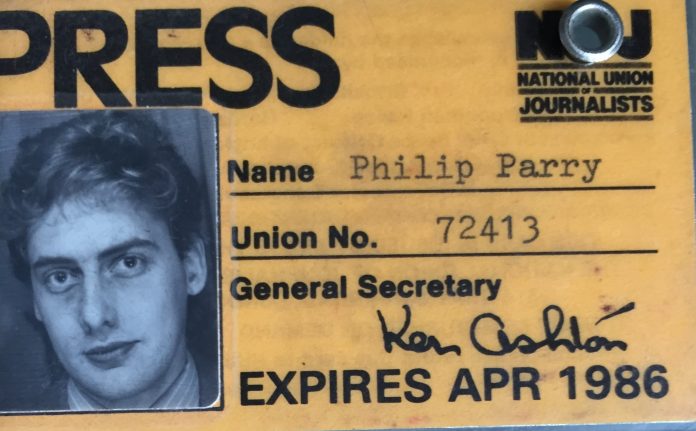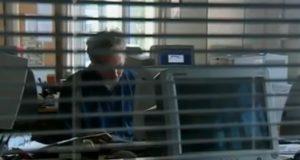- Upset coffee - 25th February 2026
- Not acting the part - 24th February 2026
- Death wish - 23rd February 2026

Here our Editor Phil Parry looks at the huge changes in the worlds of unions for print journalism and broadcasting in Wales and the rest of the globe, along with the abuse he suffers by those who do not know the libel laws, as the lure of new technology grows ever stronger.
Earlier Phil has described how he was helped to break into the South Wales Echo office car when he was a cub reporter, recalled his early career as a journalist, the importance of experience in the job, and making clear that the ‘calls’ to emergency services as well as court cases are central to any media operation.
He has also explored how poorly paid most journalism is when trainee reporters had to live in squalid flats, the vital role of expenses, and about one of his most important stories on the now-scrapped 53 year-old BBC Wales TV Current Affairs series, Week In Week Out (WIWO), which won an award even after it was axed, long after his career really took off.

Phil has explained too how crucial it is actually to speak to people, the virtue of speed as well as accuracy, why knowledge of ‘history’ is vital, how certain material was removed from TV Current Affairs programmes when secret cameras had to be used, and some of those he has interviewed.
He has disclosed as well why investigative journalism is needed now more than ever although others have different opinions, how the current coronavirus (Covid-19) lockdown is playing havoc with media schedules, and the importance of the hugely lower average age of some political leaders compared with when he started reporting.
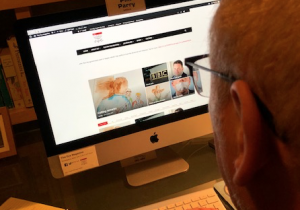
Unions affecting journalists have changed like never before but, it appears, those in charge are virtually ignoring them and have put all their eggs in one basket by going for digital ‘journalism’ where they don’t have to be recognised.
This fact has been thrown into sharp relief for me, because a new media service called The National for Wales (TNW) is meant to be launched next month.
The man behind TNW, Huw Marshall (who has been described as a “chancer” on Twitter and whose ‘stories’ have been accused of being “cut and pasted” from other publications by Private Eye), is a ‘comedian’ who has abused me on Twitter, and said in a recent podcast “We will be launching first of March”, yet he has also been investigated by the police for alleged harassment, called senior politicians t**ts, as well as made sick ‘jokes’ about a murdering gunman, so his promises have a disturbing background.

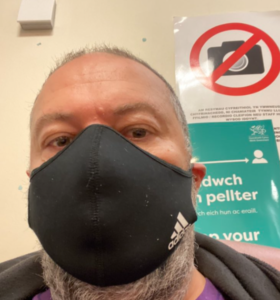
Digital activity is obviously central to Mr Marshall, and it was said on his website: “Huw has been responsible for leading S4C’s digital activities, (and) developing an (sic) implementing a new digital strategy for the channel”. One of the biggest newspaper owners in Wales recently advertised for TNW “Digital reporters (x2), audience and content editor (x1)”, but there are severe doubts about whether a ‘national’ news service can be undertaken with this number. Meanwhile the largest broadcaster in the UK has hired digital ‘journalists’ with the man in charge in Wales being pictured sitting beside 10 digital ‘journalism’ apprentices.
The newspaper company supporting TNW, Newsquest Media Group (NMG), has said: “Are you passionate about Wales and want to better inform the public about devolution, politics and policy? Newsquest is looking to hire a small number of exceptional digital journalists in the run up to the Senedd elections”.
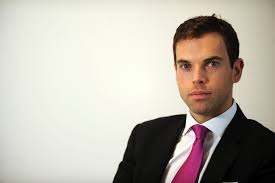
But in 2013, it was disclosed that, apart from insulting me, Mr Marshall had made extremely offensive remarks to senior politicians on Twitter, and complaints after further comments led to the reprimands. One insult seven years ago, was directed at the Labour MS and minister Ken Skates with another hurled at the former Liberal Democrat AM Peter Black. After Mr Skates tweeted in celebration of a one-vote council by-election victory over Plaid Cymru (PC) in Ruabon, Mr Marshall referred to him in his own tweet as a “gloating t**t”, and he described Mr Black as a “humourless t..t” as well as a “dull, tedious t..t”.
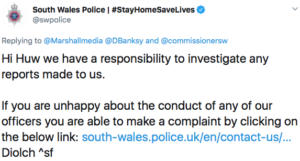 Controversy, too, has also been caused by the fact that the firm he has ‘partnered’ with for TNW, NMG, is the UK arm of the giant American corporation Gannett Incorporated, a mass media company headquartered in McLean, Virginia, in the Washington, D.C., metropolitan area. It is the largest US newspaper publisher, and this fact has made many potential supporters uneasy, with its behaviour being highlighted by the National Union of Journalists (NUJ).
Controversy, too, has also been caused by the fact that the firm he has ‘partnered’ with for TNW, NMG, is the UK arm of the giant American corporation Gannett Incorporated, a mass media company headquartered in McLean, Virginia, in the Washington, D.C., metropolitan area. It is the largest US newspaper publisher, and this fact has made many potential supporters uneasy, with its behaviour being highlighted by the National Union of Journalists (NUJ).
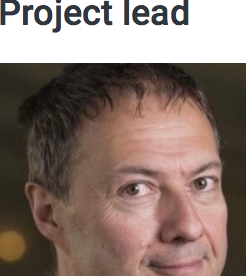 But Mr Marshall’s dealings with the police in a more mundane capacity than the tweets insulting senior politicians or me, have also been alarming. He has contacted the police but said on Twitter that there was little they could do as “it is a waste of their precious time”, and “I really pity those who try to undermine my work and reputation”. Yet it seems the police HAVE had time to investigate Mr Marshall for alleged harassment. On Twitter he told South Wales Police (SWP) that he intended to make a complaint, however officers responded by informing him that they have a “responsibility to investigate any reports”.”
But Mr Marshall’s dealings with the police in a more mundane capacity than the tweets insulting senior politicians or me, have also been alarming. He has contacted the police but said on Twitter that there was little they could do as “it is a waste of their precious time”, and “I really pity those who try to undermine my work and reputation”. Yet it seems the police HAVE had time to investigate Mr Marshall for alleged harassment. On Twitter he told South Wales Police (SWP) that he intended to make a complaint, however officers responded by informing him that they have a “responsibility to investigate any reports”.”
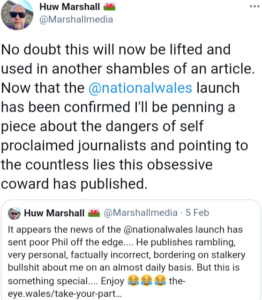 Evidently Mr Marshall does not know his journalist libel law (which is strange for someone behind a new media service), because he has said on Twitter that I am a ‘liar’ and an “obsessive coward”, linking the insults to an earlier piece I had written about his ‘venture’.
Evidently Mr Marshall does not know his journalist libel law (which is strange for someone behind a new media service), because he has said on Twitter that I am a ‘liar’ and an “obsessive coward”, linking the insults to an earlier piece I had written about his ‘venture’.
But publishing these phrases to a third person (as he has done) is highly libellous, yet luckily I know the rules. So does my libel lawyer.
Mr Marshall has also called me a “self proclaimed journalist”, which may not be libellous but is provably wrong as I trained to be a journalist in 1983 on the best newspaper course in the UK, have been one for 37 years (most of them for other organisations, including 23 with The BBC) and have taken any number of journalist exams, including ones in libel.
 I seem to have become something of a thorn in Mr Marshall’s side, and his response is further proof of his greater familiarity with the digital side of things.
I seem to have become something of a thorn in Mr Marshall’s side, and his response is further proof of his greater familiarity with the digital side of things.
He has proclaimed that he has a number of different Twitter accounts, but says he reserves one for ‘stories’ which may bother me, stating: “@marshallmedia is where I post Everton related stuff and things that upsets Phil Parry”.

As is clear, Mr Marshall is a keen user of digital technology, but he also appears to be in interesting company by endorsing this sort of ‘journalism’ as the way forward. The Director of BBC Cymru Wales (BBC CW) Rhodri Talfan Davies posed for a picture with 10 digital ‘journalist’ apprentices on the BBC CW website, even though it is obvious that The BBC faces a difficult future.
This is, though, a worrying trend because by embracing the supposed technological future these people are also accepting a world of journalism where unions have, effectively, been neutered.
Social media (like Facebook and Twitter) is extremely important, but at the end of the day it is just a way of selling your news. You still need good STORIES to put on it, and it will be interesting to see whether TNW fulfils this brief…
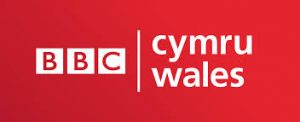

In the past strong unions did a lot of bad things (such as strengthening absurd demarcations, which were a nightmare for journalists), but they also did a lot of good by fighting for their members’ rights. Recently there has been a slight rise in union membership but the overall trajectory has been firmly downwards.
Yet when I started in journalism 37 years ago, the picture was very different. In newspapers the ‘comps’ or printers’ room was sacrosanct, and apocryphal stories circulated of an inexperienced reporter touching a tool there only to find everyone out on strike!
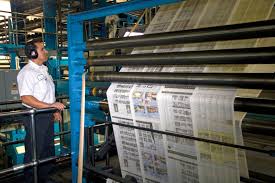
The main print unions were the NGA (National Graphical Association), SOGAT (Society of Graphical and Allied Trades) and NatSOPA (National Society of Operative Printers and Assistants).
A close journalist friend of mine in the north of England, who was in senior management, told me how he had to negotiate with each one and that the union rep. for one in particular was extremely difficult.
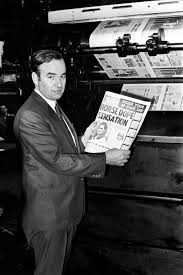
On UK papers on Fleet Street in London (they were all based there or nearby) some printers arrived for a ‘ghost shift’ and would clock on and go home again, because the unions had negotiated a deal whereby a certain number of men (and they WERE all men) would be employed even if they did no work
Rupert Murdoch became a hate figure to many, but embarked on painful, yet necessary reforms to others, when he moved his publications to Wapping in East London.
In January 1986, nearly 6,000 newspaper workers went on strike following the collapse of talks on the plans of News International (NI) (as it then was) to move its editorial as well as printing operations there, and immediately all were served with notices of dismissal. Overnight, Mr Murdoch then moved The Times, Sunday Times, Sun and News of the World to the new site, dubbed ‘fortress Wapping‘, while hiring members of the rogue (EETPU) Electrical, Electronic, Telecommunications and Plumbing Union to man it.

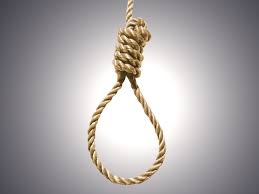
He did this, he explained in a speech a few years later, because the UK’s powerful print unions “had a noose round the neck of the industry, and they pulled it very tight”.
In the mid-80s, most Fleet Street newspapers were still produced using hot metal, despite the widespread use elsewhere of modern offset litho technology. So whereas Mr Murdoch’s papers in Australia and America could be produced with four or five men to a printing press, he said, in London it took 18.
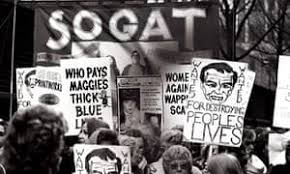
Most were paid “full-time wages for part-time jobs”, and many held down second jobs on the side: cabbies, mechanics, even morticians.
As part of the move to Wapping, Mr Murdoch demanded the unions accept flexible working, agree to a no-strike clause, adopt new technology and abandon their closed shop. They refused, and mass demonstrations outside the new plant followed which were met by large numbers of police, whose methods – aimed at ensuring strike-breaking workers could get into the plant, and newspapers could leave it – were widely criticised as excessively heavy-handed.
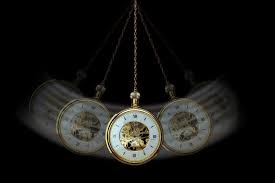
But has the pendulum now swung too far the other way?
It is certainly true that unions still have (or could have) a vital role to play in securing benefits for all those who work in the newspaper or broadcasting industries, and it seems that many are now fighting for the right to organise.
Audiences are unhappy too. As one highly-critical website puts it about BBC CW: “Where is the investigative journalism? Where are the probing documentaries? Where is the reporting of the terrible scandals and corruption that rack our much-abused nation (Wales)? Responsibility partly rests with (BBC Radio Wales) editor Colin Paterson, but chiefly with BBC Wales director Rhodri Talfan Davies”.
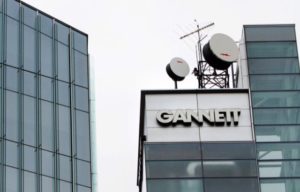 Across the world too, things may be changing. More than two-thirds of the 27 editorial staffers at the Gannett-owned Delaware Online/Wilmington News Journal have signed union cards in hopes of joining the News Guild.
Across the world too, things may be changing. More than two-thirds of the 27 editorial staffers at the Gannett-owned Delaware Online/Wilmington News Journal have signed union cards in hopes of joining the News Guild.
The plain fact remains that the most recent figures show the revenues of the largest newspaper group in Wales (Reach) still come mostly from print editions, not from digital subscriptions.
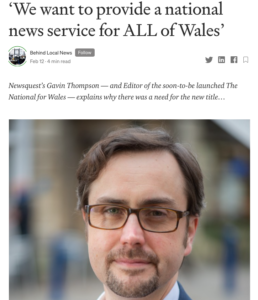 Gavin Thompson was appointed a few months ago to be Newsquest’s Regional Editor for Wales and said: “There has, perhaps, never been a more important time for the regional press”.
Gavin Thompson was appointed a few months ago to be Newsquest’s Regional Editor for Wales and said: “There has, perhaps, never been a more important time for the regional press”.
So maybe it might be an important time for unions in the press and broadcasting industries too. But for that to happen the fingers of the managers must be loosened a little as they hug new technology so closely…
Tomorrow – the facts emerging now about what independence for Wales might really mean.
 Memories about the astonishing decades-long award-winning career of this “self proclaimed” journalist (in the face of closed-shop union practices) as he was gripped by the rare disabling condition Hereditary Spastic Paraplegia (HSP), have been released in a major book ‘A GOOD STORY’. Order the book now!
Memories about the astonishing decades-long award-winning career of this “self proclaimed” journalist (in the face of closed-shop union practices) as he was gripped by the rare disabling condition Hereditary Spastic Paraplegia (HSP), have been released in a major book ‘A GOOD STORY’. Order the book now!








